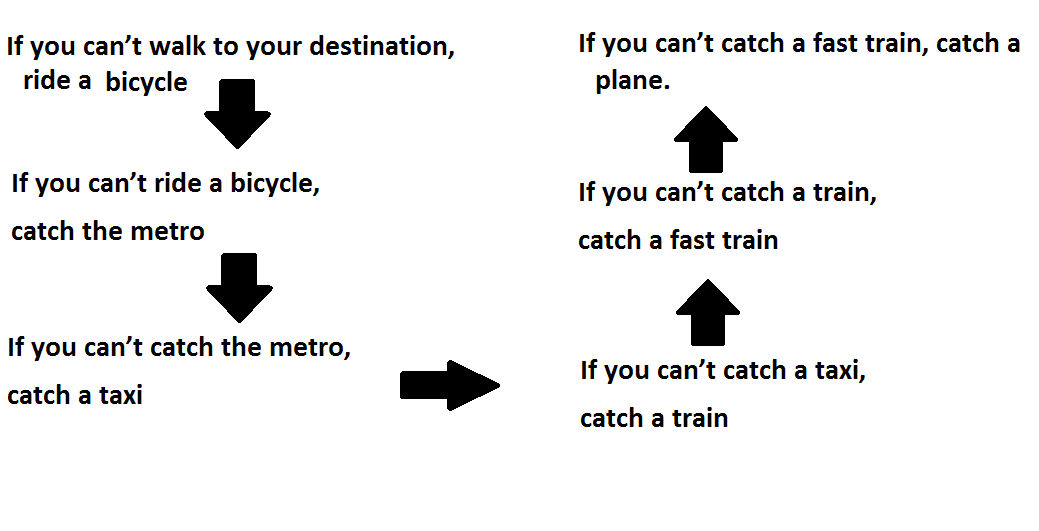Moving to China is a fantastic and life altering experience, particularly for someone who has never lived abroad before. Seeing the world through the lens of another society, one with a radically different culture and history and a vastly different center of focus inevitably changes how you view the world and your own society back home. This makes teaching in China rewarding in and of itself. However for most of us rewarding cultural experiences don’t pay off student loans. So for those of us without the benefit of a well-padded bank vault here are some tips for saving money will living in the middle kingdom.
1. Choose your city wisely:
The cost of living in China is, on average much lower than it is in Anglophone world. In 2013 the average annual familial income was approximately 13,000 RMB ($2,100 USD). With salaries starting around 8,000RMB a month, saving money while teaching here should theoretically be a breeze! However the cost of living in China can vary wildly. Compare the cost of living in Shanghai, China’s most internationally renowned and expat heavy city with Guiyang, the capital of Guizhou province fairly unknown even amongst expatriates living in China.
Guiyang, Guizhou Shanghai, Shanghai municipality
Daily Menu in the Business District 元10 RMB ($1.60 USD) 元72RMB ($11.50 USD)
It’s clear to see that that 8,000 RMB goes a lot a further in Guiyang, and consequently more money goes into your bank account.
Click here for more info on the cost of living in China
2. Eat Like a Local:
While the cost of living varies greatly between cities, even within a single city the cost of food varies greatly depending on what you’re shoveling into your head hole. The week before last was a public holiday here in China which meant a long weekend together for me and my girlfriend. We took this opportunity to eat out for breakfast a couple of times and out for dinner each night, and go for a trip or two for frozen yogurt, near our home close to Shanghai’s expensive “lifestyle center” Xintiandi. 5 or 6 meals and several mountainous yogurt cups latter and we were nearly 1000 RNB poorer!! Last weekend we went grocery shopping at our local wet market, the sum total of our weekly vegetables 45RMB, our weekly fruit 65 RMB. The difference speaks for itself.
3. Drink Tea not Coffee:
Tea is to the Chinese, what wine is to the French. If you spend some time delving into the world of tea here you’ll eventually find yourself surrounded by pedantic obsessives that can detect “hint of cinnamon and citrus” in each sip. Accordingly there are endless varieties to choose from in all price brackets. However while putting the extreme tea-o-philes to the side, there is some extremely tasty tea to be supped while living here in the home of tea. Much of it reasonably priced. Half a kilogram (enough for a month or two of regular brewing) of a tasty entry level tea should cost you around 40-70 RMB, while coffee from any of the major international coffee shops will set you back roughly 30 RMB a cup! Caffeine addicts bite your fists!
4. Taobao:
If you’ve paid any attention to international business or economic news, or if you’ve ever bothered to look at the label on any number of miscellaneous objects within arm’s reach of you right now, you might have noticed that China manufactures quite a lot of stuff. The key to the door of unlimited cheaply made bits and bobs is the Chinese answer to Ebay, Taobao. Taobao.com With an absurd wealth of online vendors, if you can’t find it on Taobao in all likelihood it doesn’t physically exist. If the Chinese language website might initially put you off, fret not! This extremely useful Taobao field guide will set you on the path to becoming a compulsive hoarder.
5. Follow the “Hierarchy of Travel”:

China has an excellent and far reaching network of public transportation, Shanghai only has 14 metro lines with 349 stations (as of May 2014) and most big cities in China have comparable networks appropriate to their size. The highest possible fare is 15 RMB and most are around 4 or 5 RMB. Taxis while more expensive than the metro are still very cheap when compared to back home, with a flag fall of between 6-18 RMB (depending on the city) which will usually cover you for a 10 minute trip. China also has an enormous conventional and fast rail network which isvery affordable. Getting around in China has never been easier and, if you follow the hierarchy, cheaper.
By Patrick Cazaly, Personal Placement Consultant
About our company:
Teaching Nomad is an American owned and operated education Recruitment Company based in Shanghai, China. Our goal and purpose is to help great teachers find great teaching jobs. Year round, we have hundreds of teaching job vacancies. Whether your goal is to be an ESL teacher or teach in an international school, we have a teaching job for you. You can browse jobs online at www.teachingnomad.com/job-search for the latest job openings. Teaching Nomad is here to make teaching in China easier, so please feel free to reach out and contact us with any questions or enquiries!

